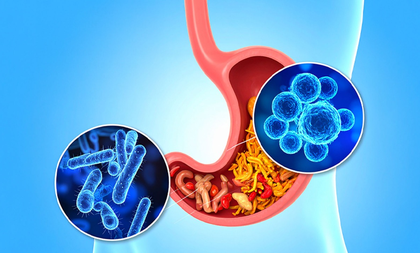New antibiotic to curb dangerous gut bacterium with a low dose
By IANS | Updated: October 14, 2025 16:00 IST2025-10-14T15:57:20+5:302025-10-14T16:00:14+5:30
New Delhi, Oct 14 The new antibiotic EVG7 has demonstrated the ability to fight the dangerous gut bacterium ...

New antibiotic to curb dangerous gut bacterium with a low dose
New Delhi, Oct 14 The new antibiotic EVG7 has demonstrated the ability to fight the dangerous gut bacterium C. difficile with only a minimal dose, a new study showed.
C. difficile is a persistent intestinal bacterium that can cause severe illness, particularly in older people and those with weakened health.
The bacterium produces a toxin that leads to severe diarrhoea. Current treatments are not always effective, as the infection often returns.
"With existing antibiotics, C. difficile sometimes reappears just weeks after treatment," said researcher and lead author Elma Mons, from the varsity.
"This happens partly because the bacterium leaves behind spores, which can develop into new bacteria, causing the infection to return," Mons said.
The team investigated the effect of a low dose of EVG7 on C. difficile in mice.
The results showed that the C. difficile bacteria were far less likely to return. In contrast, a lower dose of vancomycin did not have the same effect, nor did a higher dose of EVG7.
The researchers found that mice given a low dose of EVG7 retained far more beneficial bacteria (from the Lachnospiraceae family).
"Those bacteria actually protect against C. difficile," Mons said.
In other words: while existing treatments tend to kill many bacteria essential for good health, a low dose of EVG7 leaves most of them intact. These beneficial bacteria help prevent the infection from recurring by keeping residual spores from growing into harmful C. difficile bacteria.
While using lower antibiotic doses are generally known to promote resistance, a low dose EVG7 was found to effectively kill C. difficile making it less prone to inducing resistance.
"Antibiotic resistance occurs when you don't completely kill the bacteria but merely irritate them," Mons said, adding that "they can then come back stronger."
Disclaimer: This post has been auto-published from an agency feed without any modifications to the text and has not been reviewed by an editor
Open in app